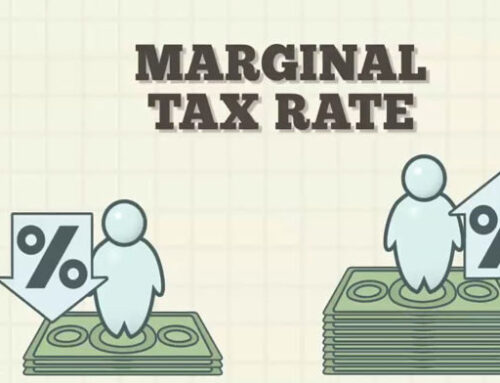When it comes to financial reporting and assurance services, compilation engagements play a crucial role. These engagements provide a level of service that is distinct from audits and reviews. In this blog post, we will dive deep into the world of understanding compilation engagements, explaining what they are, how they differ from other types of engagements, and why they are essential for businesses.
Defining and Understanding Compilation Engagements:
A compilation engagement involves the preparation of financial statements based on information provided by the company’s management. Unlike audits and reviews, the accountant’s objective in a compilation engagement is not to provide assurance on the accuracy of financial statements but to present the information in a structured and presentable format.

Process and Responsibilities:
During a compilation engagement, the accountant organizes and presents the financial data provided by the company. This includes assembling the financial statements, notes, and related disclosures in accordance with the applicable financial reporting framework. It’s important to note that the accountant doesn’t verify the accuracy or completeness of the data but ensures that the presentation adheres to the relevant accounting standards for understanding compilation engagements.
Key Differences from Audits and Reviews:
Compilation engagements differ significantly from audits and reviews. While audits and reviews involve varying levels of assurance on the financial statements, for understanding compilation engagements are limited to presenting financial information without any form of assurance. This makes compilation engagements suitable for situations where users of the financial statements require basic information but do not necessarily need detailed analysis or verification.
Benefits of Compilation Engagements:
- Cost-Effective Solution: Compilation engagements are generally more cost-effective than audits or reviews, making them a suitable option for small businesses with limited resources.
- Timely Financial Information: As compilation engagements focus on organizing and presenting existing financial data, businesses can obtain timely financial statements, which can be crucial for decision-making.
- Flexibility: Compilation engagements can be tailored to meet specific reporting requirements, allowing businesses to provide financial information in a format that suits their stakeholders’ needs.
Also read: The Future of Compilation Engagements: Trends and Predictions

Compilation engagements serve an important role in the world of financial reporting by providing structured and organized financial information to users without the level of assurance provided by audits or reviews. While they don’t involve verification of the financial data, they offer a cost-effective and timely solution for businesses aiming to present their financial information in a clear and understandable manner.
In the world of accounting and financial reporting for understanding compilation engagements, businesses often require various levels of assurance for their financial statements. Compilation engagements are one such service offered by accounting professionals. But what exactly is a compilation engagement, and how does it benefit businesses?
Also read: Compilation Engagements in Small Business Reporting in 2024
The Purpose of Compilation Engagements:
Compilation engagements serve several essential purposes for businesses and stakeholders:
- Financial Statement Preparation: The primary objective of a compilation engagement is to organize a company’s financial records and prepare financial statements, including the balance sheet, income statement, and cash flow statement.
- Compliance with Reporting Requirements: Many businesses are required by regulatory authorities, lenders, or investors to produce financial statements in a specific format. For understanding compilation engagements help ensure compliance with these reporting requirements.
- Internal Use: Even when not mandated by external parties, businesses often use compiled financial statements for internal purposes, such as management decision-making, budgeting, and strategic planning.
The Compilation Process:
The compilation process involves several key steps:
- Data Gathering: The accountant collects financial information, including records of transactions, ledgers, bank statements, and other relevant documents from the client.
- Organizing Financial Data: The accountant organizes and structures the financial data into the appropriate financial statement format, ensuring it adheres to the applicable accounting principles or standards.
- Adjustments and Notes: If necessary, the accountant may make adjusting journal entries to correct errors or discrepancies in the financial data. Additionally, explanatory notes may be included to provide context or explanations for certain transactions or balances.
- Compilation Report: A compilation report is prepared by the accountant and attached to the compiled financial statements. This report explicitly states that the accountant has not audited or reviewed the financial statements and that no assurance is provided regarding their accuracy.
- Delivery to the Client: The compiled financial statements and the compilation report are delivered to the client for their use and distribution to relevant stakeholders, such as lenders or investors.

Benefits of Compilation Engagements:
For understanding compilation engagements offer several benefits to businesses and stakeholders:
- Organized Financial Data: Compilation engagements help businesses maintain organized financial records, making it easier to track financial performance and make informed decisions.
- Compliance: They ensure compliance with reporting requirements, which can be critical for regulatory compliance, obtaining loans, or attracting investors.
- Internal Decision-Making: Compiled financial statements provide valuable insights for internal decision-making, enabling businesses to assess their financial health and plan for the future.
- Cost-Effective: Compilation engagements are often more cost-effective than audits or reviews, making them accessible for small to medium-sized businesses.
Conclusion:
Compilation engagements are a valuable financial service that helps businesses organize their financial data and present it in a structured format for understanding compilation engagements. While they do not provide assurance regarding the accuracy of financial statements, they serve crucial roles in compliance, internal decision-making, and cost-effective financial reporting. Understanding Compilation Engagements in Chatham for businesses seeking to meet reporting requirements and improve financial management, compilation engagements can be an essential tool in their financial toolkit.
Recent Posts
FAQ
What advantage do compilation engagements offer in terms of cost-effectiveness, especially for small businesses with limited resources?
Compilation engagements present a cost-effective solution, particularly when compared to more extensive assurance services like audits or reviews. This affordability makes compilation engagements a suitable option, especially for small businesses that may have constrained financial resources.
What is a Compilation Engagement?
A compilation engagement is a type of financial service provided by certified public accountants (CPAs) or accounting firms. Its primary purpose is to assist businesses in organizing their financial data and presenting it in a structured format. Unlike audits and reviews, compilation engagements do not provide any level of assurance regarding the accuracy of the financial statements. Instead, they focus on presenting the data in a clear and understandable manner.



